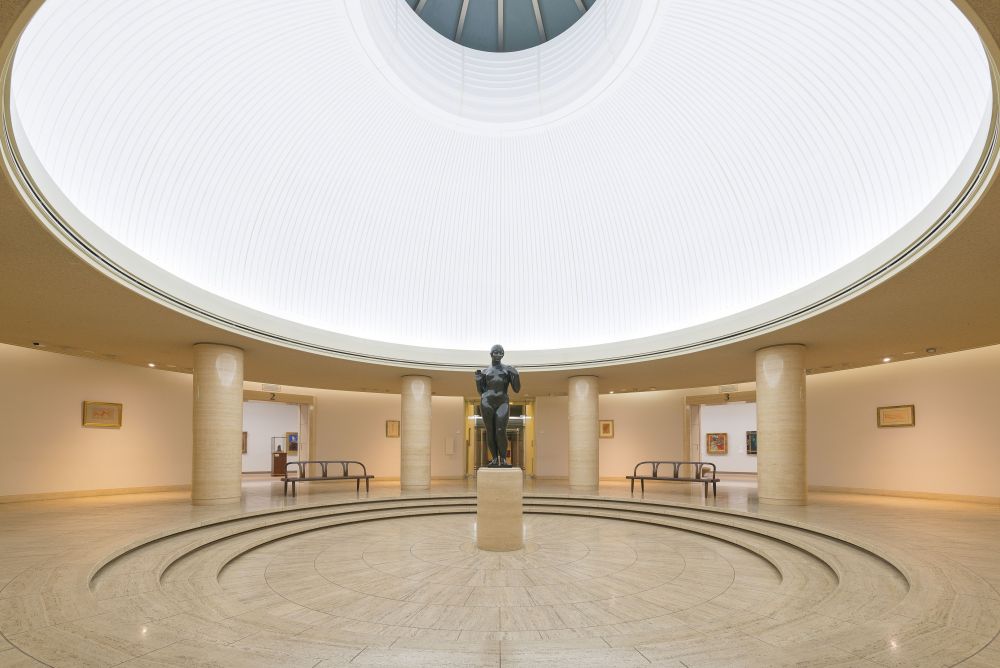

The Hiroshima Museum of Art, located in Hiroshima, Japan, stands as a symbol of the city's recovery and its dedication to peace and cultural enrichment following the tragic atomic bombing on August 6, 1945. The museum was founded by local Hiroshima-based company, Fukutake Publishing (now part of the Benesse Corporation), with the aim to contribute to the cultural activities of the city through the appreciation of art.
The museum opened its doors to the public on May 3, 1978. It was a significant milestone in the history of Hiroshima's post-war rehabilitation efforts. Conceived as a facility that would house both modern European artworks and contemporary Japanese pieces, the Hiroshima Museum of Art provided a site where locals and tourists could engage with the power of human creativity and the resilience of the human spirit.
Prior to the establishment of the museum, Hiroshima had already been a focal point for tourists due to its historical significance and the presence of peace monuments, including the Hiroshima Peace Memorial Park. The Hiroshima Museum of Art added a new dimension to this, offering insight into the world of art in a city that had become synonymous with the quest for peace.
The museum's European art collection features works from the late 19th and early 20th centuries, including pieces from the Impressionist and Ecole de Paris movements, which convey messages of hope and tranquility. The Japanese art section showcases pieces that reflect the country's unique culture and the evolution of its artistic styles throughout the turbulent 20th century.
In recent years, Hiroshima has seen a shift in tourism trends, with an increasing number of visitors looking for authentic experiences that offer a deeper understanding of the city's history and its contemporary culture. The Hiroshima Museum of Art plays a vital role in this context, serving as a nexus for education, reflection, and cultural exchange.
The museum has embraced innovation, offering special exhibitions and interactive programs that are designed to engage a new generation of art lovers and peace advocates. Educational programs for children and international collaborations have expanded the museum's reach and solidified its position as a significant destination on Hiroshima's tourist map.
Located near the Hiroshima Central Park and the Atomic Bomb Dome, the museum is easily accessible to visitors. It serves as a contemplative space where the beauty of art intersects with the city's history, promoting a message of hope and renewal that is essential to Hiroshima's identity.
As Hiroshima continues to evolve as a tourist destination, the Hiroshima Museum of Art stands testament to the city's resilience and its everlasting commitment to fostering peace through art. For those looking to understand the profound impact of the city's past while celebrating its regrowth and cultural significance, a visit to the Hiroshima Museum of Art is an indispensable experience.